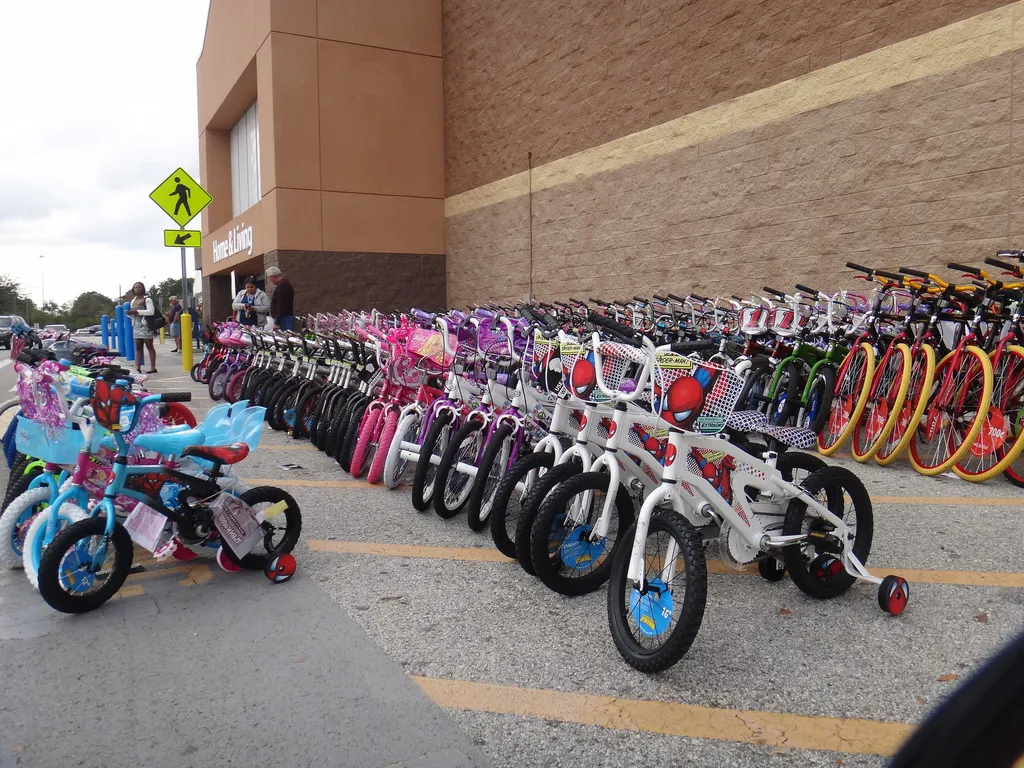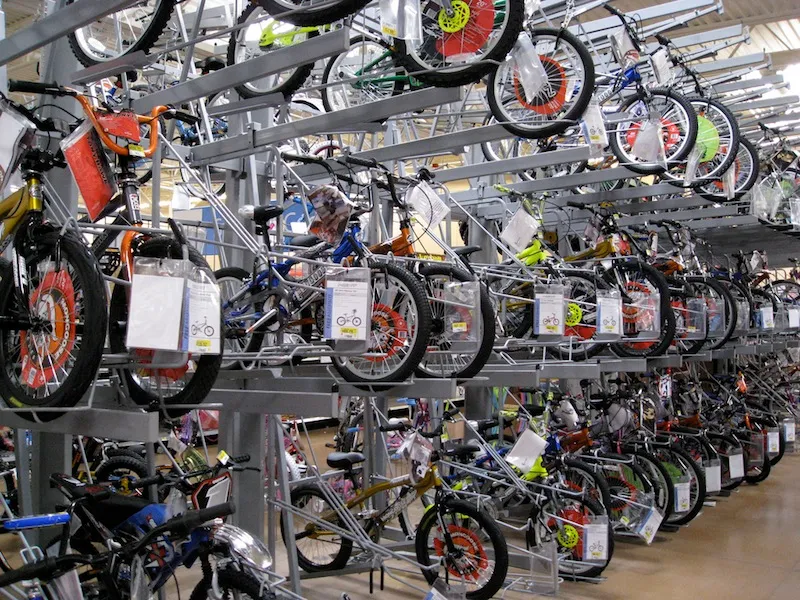The largest volume seller of bicycles in the United States, Walmart, is looking to keep prices low, as labor and material costs in China rise. To do so Walmart, the world’s largest retailer of just about everything, is turning to India’s Hero Cycles.
This manufacturing shift might seem like a sudden change, but not so says Jay Townley, partner at The Gluskin Townley Group, the leading market research and analyst firm covering the bicycle industry in the US.
“US imports were at the lowest levels that they’ve been at in 12 years, in part because of the situation with juvenile market,” Townley told BikeRadar, noting that Walmart, K-Mart and other discount retailers have been adjusting the juvenile market, which currently accords for the bulk of bicycles sold in America. “Imports have been down by 20 percent, the lowest levels since 2000.”
Hero Cycles may live up to its name, and save the day for Walmart when it comes to providing a low cost bicycle. “The Chinese costs have gone up,” said Townley. “While import volume went down. The price increase has been passed through. Walmart, which is always looking for the lower cost, could be casting its eyes elsewhere as China is no longer the lowest cost.”
This change is not the first time Walmart’s have wielded their buying power in the bicycle industry. Walmart, which saw its dominance in the retail market grow in the 1990s, had previously sourced the bulk of their bicycles from Huffy’s plant in Ohio. But as Walmart continually looked to lower bring the price down, it forced Huffy to close their US plants and move production offshore to keep production prices competitive.
Currently, the largest importer of bicycles for Walmart remains Pacific Cycles, which now sell more bicycles than any other company in North America. Pacific’s brands include: Schwinn, Mongoose, Roadmaster, and DYNO. Pacific Cycles in turn is a subsidiary of Canadian-based Dorel, which also happens to own Cannondale.

Kids bikes lined up outside of a Walmart in the US
Pacific Cycles, along with Huffy currently produce the majority of their bikes in China, with production spreading to Vietnam and Indonesia. This, says Townley, is just the evolution of the trend that started when bike production moved from Japan, to Taiwan, and China, as producers continue to chase cheaper labor.
“China can’t go backwards on labor costs,” said Townley, “India is already becoming the low cost center for manufacturer of sporting goods.”
The other factor that comes into play is that China and India have signed bilateral trade agreements, which allow Chinese producers to utilize Indian labor, as goods made in one country can head to their neighbor duty free. This means bike frames can be made in one nation, components made in the other, to seamlessly form complete bikes that are shipped to markets in North America and Europe.

In the US, a rider can buy a bike for as little as $35 at Walmart
More importantly this likely isn’t the end of bicycles in China, but is simply the beginning of bikes from India.
Speaking to Business Standard India, Pravin Patil, president of Urban Trail and Hero Cycles noted that the Walmart deal is just the first step. The paper quoted Patil, “We plan to sell premium bicycles from Urban Trail range globally.”
As bicycle imports from India were essentially zero in 2011 the Walmart deal could be a big first step indeed, with the companying looking to double its global sales to 10 million units annually by 2015. “Walmart has the commercial power to do this,” said Townley.
And when asked if we will someday see WorldTour or World Cup riders Hero Cycles (or brands manufactured from India), he said, “Anything could happen.”
